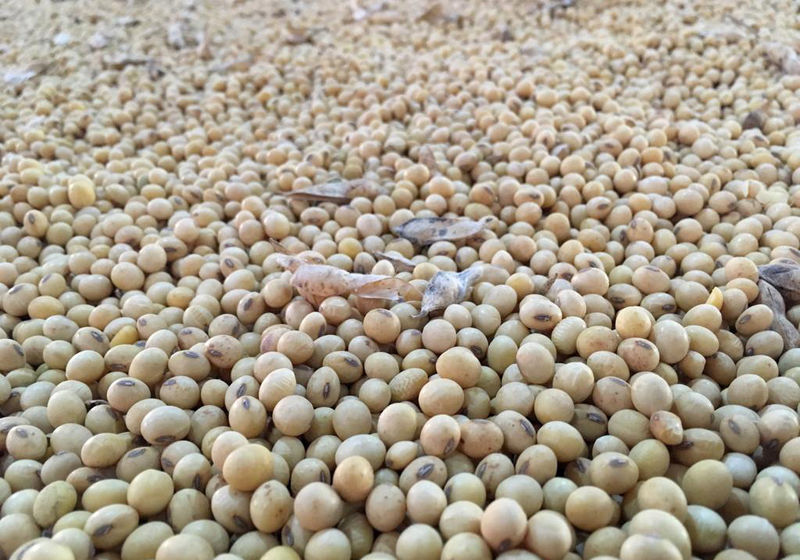By Ana Mano
SAO PAULO (Reuters) - The protein content in Brazilian soybeans fell for the first time in four harvests in 2018, according to preliminary government data, a development that has already cost Brazilian companies business with top buyer China.
Declining protein levels in Brazil, the world's top soybean supplier, spell trouble for exporters who are faced with the prospect of cancellations, selling beans at a discount or stricter contracts requiring quality assurances with buyers who want to guarantee a nutrient-rich purchase.
The protein content in Brazil's 2018 soy crop harvested around January of that year slipped to an average of 36.83% from 37.14% in the previous crop according to preliminary findings, Marcelo de Oliveira, researcher at government research agency Embrapa, told Reuters. The data will be adjusted by September, when the final Embrapa soy quality report is due, he said. In a statement, Embrapa said annual variations in Brazil's soy protein content are not statistically relevant, and indicate the levels of that component of the grain have remained stable.
Cesar Borges, board executive at food processor Caramuru Alimentos SA, said in an interview the company had to turn down a potential sale to China this week because it could not guarantee the minimum protein levels required by the Chinese importer.
China, which imports soybeans to use in livestock feed, has grown increasingly more reliant on Brazil for soybeans since last year, when it applied retaliatory tariffs on U.S. soybeans in response to U.S. duties on Chinese goods.
However, Beijing's overall soy import needs are decreasing as an outbreak of African Swine Fever kills millions of pigs, meaning it can be more selective about its purchases.
China is also importing soybeans from No. 3 exporter Argentina, though in smaller amounts. Camilo Motter, a broker in Paraná state, confirmed falling protein content and Argentine competition can affect Brazilian soy premiums, the amount paid at local ports. Argentine soy protein content rose to 35.4% in 2019 from 34.6% in the previous crop, when a drought hurt the quality of the country’s soybeans, according to the National Institute of Agricultural Technology.
Antonio Pípolo, an official at Embrapa, said Brazilian farmers care more about quantity than protein or oil content, which does not alter the price they get when they sell their beans to processors or exporters. Soybean yields rise inversely to protein levels, according to the agency.
The U.S. soy industry has also seen protein levels fall in recent years as farmers chased higher yields. That trend helped Brazil, where warmer weather was thought to offset the impact of higher crop yields on protein levels, become a larger supplier of soybeans to China than the United States over the past decade, even before the trade war.
China currently buys around 80% of Brazil's soybean exports.
If Embrapa's figures are confirmed, Brazilian soybeans still had higher protein content than the average 34.2% in U.S. soybeans in 2018, according to the U.S. soybean quality report compiled by industry groups. But U.S. protein levels improved slightly from 2017 while Brazilian protein levels appear to be going the opposite direction.
"All crushers are suffering," Alessandro Reis, chief operating officer at Brazilian soy processor CJ Selecta, told Reuters by telephone. Declining protein content has increased the need to separate soy hulls from the rest of the extractive material, lowering the weight of the grain and hence the volumes of meal produced, Reis said.
Separating the fiber-rich soy hull helps boost protein content in the soymeal to between 46% and 48%, which is a contractual requirement, he explained. While the soy hull by-product can also be exported, it has a much lower market value than the meal, Reis said.
"I don't believe we will stop delivering soy to China. But if they insist on protein levels around 35-36%, it will be a problem for us," Reis said.
Chinese complaints over protein in Brazil have led to internal discussions at Brazil's grain exporter's association Anec aimed at revising the terms of the standard soybean export contract, which sets quality thresholds including oil content and maximum permitted grain humidity, said Lucas de Brito, an Anec executive.
Brito said there is no set value for protein content in the standard contract, but traders have discretion to set quality standards in private negotiations with buyers.
